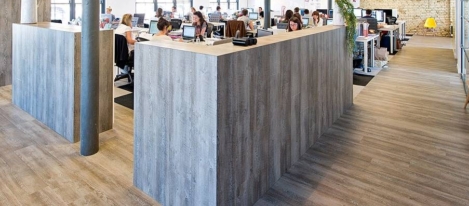July 4, 2015
Beyond agile working + Is the environment a non-issue? + Neocon review
 In this week’s issue; Paul Goodchild reviews Chicago-based office design event Neocon; Andrew Mawson describes a major new research project on knowledge workers and Dan Callegari argues the business case for green building design is changing. Mark Eltringham finds we are often best able to understand the way people function by using symbols of mechanisation; asks whether the environment could now be something of a non-issue for building managers and suggests employers like open plan offices because they allow them to keep an eye on what people are doing. We reveal that working while on holiday is fast becoming the norm for many workers and that new evidence is published on the positive influence of good ergonomics on performance. Subscribe for free quarterly issues of Work&Place and via the subscription form in the right hand sidebar for weekly news, follow us on Twitter and join our LinkedIn Group to discuss these and other stories.
In this week’s issue; Paul Goodchild reviews Chicago-based office design event Neocon; Andrew Mawson describes a major new research project on knowledge workers and Dan Callegari argues the business case for green building design is changing. Mark Eltringham finds we are often best able to understand the way people function by using symbols of mechanisation; asks whether the environment could now be something of a non-issue for building managers and suggests employers like open plan offices because they allow them to keep an eye on what people are doing. We reveal that working while on holiday is fast becoming the norm for many workers and that new evidence is published on the positive influence of good ergonomics on performance. Subscribe for free quarterly issues of Work&Place and via the subscription form in the right hand sidebar for weekly news, follow us on Twitter and join our LinkedIn Group to discuss these and other stories.



































July 6, 2015
Humans will remain at the heart of the emerging digital workplace
by Maciej Markowski • Comment, Flexible working, Technology, Workplace design
(more…)